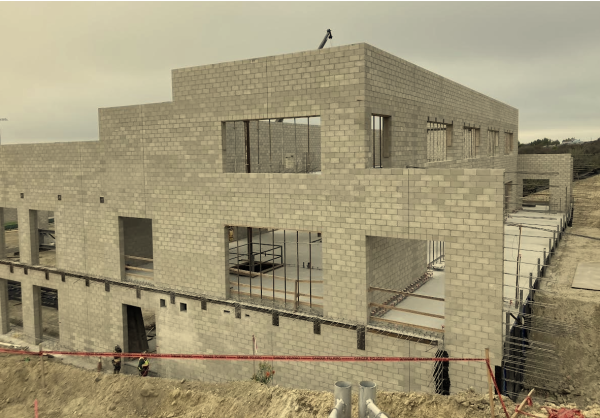The Call for a Wall
Donald Trump is running his presidential campaign on a unique platform. Whether you unwaveringly agree with his ideas or relentlessly denounce them, it is difficult to argue that many of his statements have stirred controversy among the American public.
What is your opinion on his comment that journalists and reporters constitute the lowest form of life? What about when he mentioned that he would build a wall on the southern border to keep out Mexican murderers and rapists and, on top of that, force the Mexican government to pay for its construction? How do you feel about his call for a temporary ban on Muslims from entering the country? It would not be surprising to hear a wide range of opinions on each of these controversial remarks.
However, your love, hate, or indifference towards Trump is beyond the scope of this article. What I would like to focus on is one of the aforementioned ideas of Mr. Trump: the concept of a wall.
Given the current economic uncertainty and threat of terrorism, a lot of people across America feel insecure and fearful. Most people like to find simple answers to complicated issues. It is easy to assign a lack of economic opportunity to immigrants and violence to Islamic terrorism. The idea of a free, beautiful, 1989-mile long wall that can keep poor and dangerous people out of our beloved country and “Make America Great Again” seems intuitive, logical, and practical.
If the idea of the wall was not rooted in blaming minorities for the problems we face in America, encouraging racism towards the powerless, and sowing division, the wall could have a case. It is not the wall itself that is the primary issue; rather, it is the twisted rationale and the hate that the wall represents. Trump has struck a sensitive nerve and cleverly tapped into human instinct by advocating the wall; it is a fantastic marketing technique. Evil or genius is for you to decide.
In a broad sense, what do you envision when the word “wall” comes to mind? Just picture the walls of your home. What is their purpose? How about the walls of your room? Inevitably, many will state that these walls allow for a personal space in which a group or an individual feels a sense of protection and privacy.
Donald Trump is thinking with a parallel mindset, just on a national scale. He desires to gain votes through advocating protection for all Americans. The controversy surrounds the ideology that he uses as his foundational support for the wall.
Walls are OK, hate is not; walls are fine, racism is not; walls are acceptable, but not division.
Regardless of how you feel about Trump, the inevitable truth is that we all build walls around ourselves, either in a literal sense through sheltering ourselves in homes or in other, more subtle manners. Do you have a private Instagram or Twitter account? If so, should that count as a wall (Facebook pun unintended)? There is nothing wrong with wanting privacy or alone time.
However, if you intentionally separate yourself from others due to feelings of hate, fear, or superiority, you may be going to a dark, lonely place. It may be time to change the perspective in which you view other people. Separating our human society will ultimately lead to more problems than solutions.
My suggestion is this: don’t always focus on building a wall. Maybe try to build a door instead.









